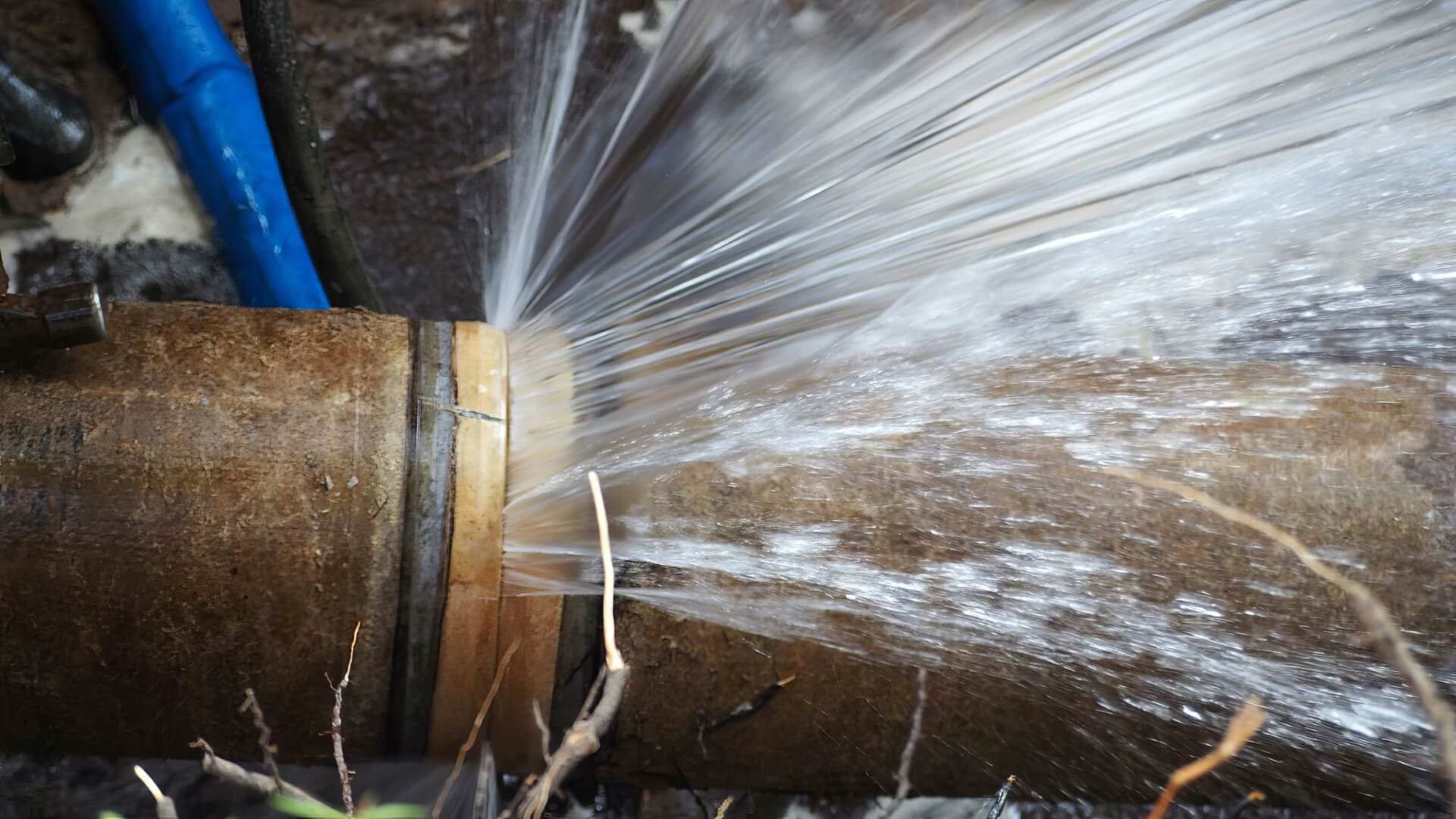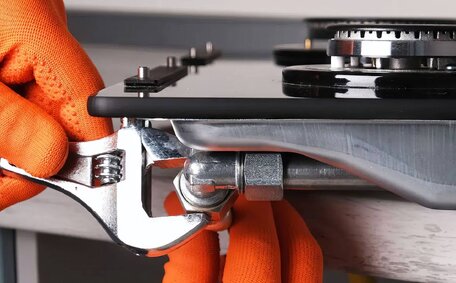Understanding the 'rotten egg’ smell in hot water
The smell resembling 'rotten eggs’ emanating from hot water is from hydrogen sulfide gas produced by sulfur bacteria in the water supply. These bacteria digest sulphur in the water, emitting hydrogen sulfide as a byproduct.
Though not typically harmful to health, hydrogen sulfide gas leads to foul odours from your water heater, making water undesirable for use. The gas, which can evoke a smell like rotten eggs, is most noticeable when the water emits that particular odor as your plumbing allows it to escape as the hot water faucet is initially engaged.
Other potential causes for sewer gas or egg smell in hot water include corrosion of your water heater’s magnesium or aluminium anode rod, which can introduce sulfide into your water through a chemical reaction with unpleasant results. The deterioration of your water heater’s magnesium anode rod can prompt reactions with tank water that produce hydrogen sulphide gas.
Eliminating the rotten egg smell from your water requires eradicating and flushing out the sulfur bacteria colonies. Replacing a compromised anode rod with a powered alternative can prevent future occurrences of rotten egg odours.
Raising the water heater’s temperature to over 60°C or draining the tank can remove this odour by killing bacteria or flushing out the gas.
How sulfur bacteria contaminates hot water systems
Sulfur smells often originate from bacteria entering through plumbing gaps, producing sulfide that affects your hot water system. These organisms break down the sulphur, fuelling their metabolic functions, and in the process alter the water quality, infusing sulfide into your house water supply.
As sulphur bacteria multiply, they spread through the water heater tank and pipes, forming biofilm layers that harbour massive colonies. These biofilms continuously produce hydrogen sulfide, the metabolic byproduct responsible for the 'rotten egg’ odour in hot water.
As sulphur bacteria flourish, water quality declines, often because of a neglected anode rod, so it’s critical to inspect your anode to preempt undesirable odours. one might ponder, 'why does my hot water develop these issues?' One might wonder, 'does my water source remain unchecked?' leading to a 'critical colony count’ threshold being met, thus making treatment challenging. At this juncture, hydrogen sulphide levels climb, sometimes to the point where the smell coming from your hot water becomes unbearable.
To address the problem of established sulphur bacteria and circumvent the point of no return, employing a chlorination shock as a water purification strategy is potent in clearing up the smell permeating into your hot water. This procedure enables you to learn more about eliminating bacteria and banishing the egg smell, ensuring all your water retains its quality, especially when implemented as part of your regular maintenance routine. Preventing bacteria recurrence is crucial by altering water chemistry, maintaining water freshness throughout your home.
The role of anode rods in rotten egg odors
Anode rods play an important role, housed inside tank mechanisms, by attracting corrosion instead of allowing it to damage the interior tank walls. However, as the magnesium content of these anode rods reacts with heated water, trace amounts of hydrogen sulphide gas can be generated – contributing to rotten egg odours.
In most cases, modern water heaters installed in your home are equipped to handle potential issues, coming with a magnesium anode rod to slow tank corrosion. In regions with particularly hard or mineral-rich water, magnesium anode rods are susceptible to rapid corrosion. The chemical interplay spawns hydrogen sulphide, dissolving into what should be clean tap water, manifesting as a gas when your tap is actuated.
If you need water treatment, switching to an aluminium or zinc alloy anode rod can aid in reducing potential smell from your tank. These anodes are less reactive, producing negligible hydrogen sulphide. They still protect the tank walls without adding odours to hot water.
In scenarios with excessive magnesium levels, corrosion may produce significant hydrogen sulphide, resulting in a hot water system that smells like rotten eggs. Ion exchange water softening can expel magnesium and calcium, which are minerals that expedite objectionable anode corrosion.
Assessing your hot water system
Inspecting your hot water system periodically can help identify issues that contribute to a rotten egg smell before they escalate. This includes checking the water heater’s magnesium alloy anode rod for extensive corrosion, prompting the query, 'how do I tackle the issue of hydrogen sulphide causing odour?'.
Remove the anode rod and examine its surface. Pitting, chunks of debris, a thin core wire or foul odours indicate advanced corrosion. At this stage, consider a professional heater repair service to assess if your anode rod replacement or a complete system inspection is warranted to address the rotten egg smell your water exhibits.
Also, check the anode and water heater exterior for rust or small leaks, which could permit sulfur bacteria entry. Draining a few litres from the tank’s base can reveal whether water smells like eggs, indicating bacterial buildup.
Keep detailed records and photographic evidence of inspections for service technicians to diagnose water quality issues and suggest remedies.
Troubleshooting rotten egg odors
There are several steps you can take to troubleshoot and eliminate a rotten egg odour from your hot water system:
Flush the Water Heater
Flushing the water heater tank can temporarily remove built-up hydrogen sulfide gas and dissipate any rotten egg odour. Turn off the unit and connect a garden hose to the drain valve at the base of the tank to extricate the rotten egg odor, releasing a few gallons of water when run, diminishing any persistent smell in the hot water.
Inspect and Replace Anode Rod
If a smell occurs with hot water use, inspect the tank’s magnesium anode rod for any deterioration. Significant corrosion suggests replacement is needed, which can decrease sulphide gas production. Consider a zinc or aluminium alloy rod if you have very hard water and want to prevent any water heater smells.
Shock Chlorinate the System
Infusing your tank water with concentrated chlorine bleach or hydrogen peroxide eradicates the sulphur bacteria and ensures consistently clean water from your faucets. Deactivate the heating unit, drain a portion of the tank, introduce bleach, and subsequently activate the hot water taps to distribute it, addressing the smelly water directly. Flush after 8 hours.
Increase Hot Water Temperature
Maintaining temperatures above 49°C/120°F can reduce sulphur bacteria viability, preventing both hot cold water smells from impacting your comfort. Keep your thermostat set to 49°C or above to minimise water heater smells in both hot tap and cold water. Maintaining a high temperature and periodic flushing keeps new bacteria growth in check.
Utilising these troubleshooting tips helps eradicate bacteria, clear gas pockets, and block further colony growth, keeping rotten egg odours at bay.
Preventing sulfur smells in your hot water
There are several preventative measures you can take to stop rotten egg odours arising from your hot water system:
Flush the System
Periodic flushing out a few gallons from the base of the water heater tank can prevent rotten egg odours by deterring hydrogen sulphide gas and sulphur bacteria build-up. This helps to scrub away deposits plaguing your faucets in both hot and cold water systems before significant bacterial colonies establish, effectively helping rid rotten egg smell.
Check and Replace Anode Rod
Inspecting and replacing a corroded magnesium alloy anode rod every 2-3 years, or switching to a zinc or aluminium variant, minimises hydrogen sulphide generation. This maintains protection against tank corrosion without producing odours.
Treat Incoming Water
Treating unusually hard incoming water via a calcite filter or water softener removes excess minerals that accelerate anode corrosion. An alternative to prevent your water smell like rotten elements is to install a Sulphur-Cleer filter to oxidise sulphur and kill bacteria before it enters the hot water system.
Maintain Minimum Temperatures
Keeping your hot water system temperature at a constant 120°F/49°C or higher inhibits sulphur bacteria growth while periodic flushing removes any traces that enter the tank. Combining these preventative maintenance steps with effective water treatment procedures whether for your hot water or your cold water deters major colonies from forming.
Being vigilant to Being proactive to rid your system of rotten elements and treat issues in your water supply while regularly servicing your hot water system ensures hydrogen sulfide gas and rotten egg odours stay away for good.
When to call a professional for help
If you have taken all the recommended troubleshooting steps but the rotten egg smell in your hot water persists, calling in a specialist for water heater repair is advisable.
A skilled plumber from Chatswood Plumbing can undertake a range of diagnostic services to get to the bottom of persistent rotten egg odours. This includes:
- Inspecting your entire hot water system set-up and testing water samples
- Assessing the condition and efficiency of components like the anode rod and tank
- Checking for and removing sulphur bacteria colonies
- Advising on suitable preventative measures or repairs for your situation
With more than extensive experience dealing with problematic hot water systems across Chatswood and Sydney, your local expert technicians at Chatswood Plumbing have the insights to get to the root cause of rotten egg smell issues once and for all.
We offer comprehensive solutions for hot water repairs, maintenance, installation and optimisation. Get in touch today by email or phone to book an inspection or discuss your concerns with our friendly team.






